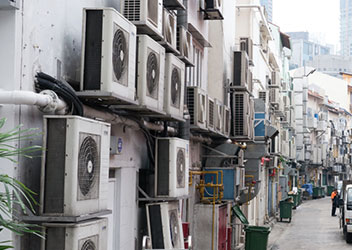Agreement Reached for HFC phasedown at Kigali
Shakti Sustainable Energy Foundation, October 20, 2016
India submitted an amendment proposal for phasing down the use of HFCs under the Montreal Protocol at the thirty-fifth Meeting of the Open-Ended Working Group (OEWG 35) in Bangkok, Thailand in April 2015. This submission was the first time that India indicated its willingness to agree on a HFC phase down under the auspices of the Montreal Protocol. This development in part paved the way for an amendment to be agreed in Kigali in 2016.
India’s amendment proposal laid down key markers for timelines proposed by India for phasing down HFCs. For developing countries (A5 countries), India proposed baseline and freeze years of 2028-30 and 2031 respectively. These baseline and freeze years were also put forward at OEWG 38, which was held in Vienna in July 2016.
The recently concluded Meeting of the Parties to the Montreal Protocol (MOP 28) in Kigali has yielded an amendment with three country groupings; there are two separate developing country groups and one developed country group. Under the adopted amendment, India has agreed to amended baseline and freeze years of 2024-26 and 2028 respectively. During the course of 2016, India agreed to advance its baseline and freeze years by four and three years respectively. India will make its first reduction, a 10% cut, by 2032. The table below summarizes the relevant details for the country groups:
|
Group |
Suggested baseline and freeze years (for A5/developing countries) submitted during OEWG 38, July 2016 |
Kigali Amendment, October 2016 (baseline and freeze agreed for each group)* |
||||
|
Proponents |
Baseline |
Freeze year |
Baseline |
Freeze year |
Reduction steps |
|
| Group I(Developed countries including EU, US etc.) | EU and JUSSCANZ** | 2017-2019 | 2021 | 2011-13 | 2019 | 85% reduction by 2036 |
| Group II (Including China, Latin America and other Island states etc.) | China | 2019-2025 | 2025-2026 | 2020-22 | 2024 | 10% reduction by 2029 and 80-85% reduction by 2045*** |
| Latin America | 2017-2019 | 2021 | ||||
| Pacific Island Countries | 2017-2019 | 2021 | ||||
| Group III(Including India, Pakistan, Iran, Iraq and the Gulf states) | India**** | 2028 -2030 | 2031 | 2024-26 | 2028 | 10% reduction by 2032 and 85% reduction by 2047 |
| Pakistan | 2019-2025 | 2025-2026 | ||||
| Gulf Cooperation Council | 2024-2026 | 2028 | ||||
| Iran | 2024-2027 | 2029 | ||||
* The final decision text for the Kigali Amendment is not yet available. The information provided in the table is based on newspaper articles and blogs and articles by NGOs/think tanks
**Japan, the US, Switzerland, Canada, Australia, Norway and New Zealand
***Some newspapers have reported 80%, while others have reported 85% as the 2045 target for these countries
****The dates proposed by India during OEWG 38 were the same as those proposed in its amendment proposal submitted in April 2015
At Kigali, the Government of India also announced that it had taken a decision that will require all Indian companies which manufacture HCFC-22 to capture and then incinerate HFC-23, a by-product, so that its release into the atmosphere is eliminated. This represents significant action on the part of India, as it has decided to unilaterally control the emissions of HFC-23, a gas with GWP of 11,700, without any financial support from the Multilateral Fund.
